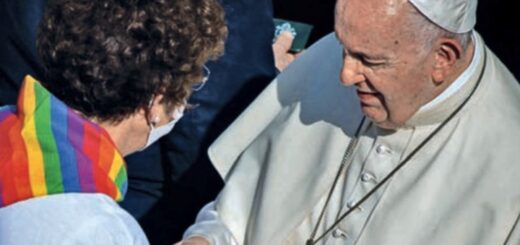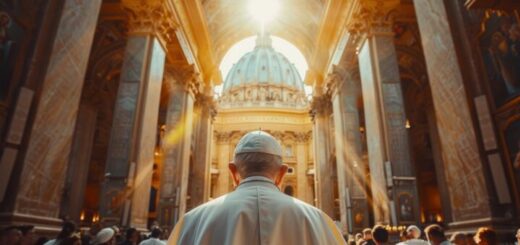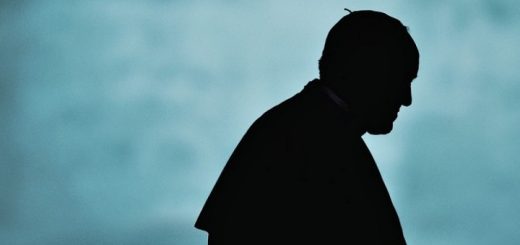Don Andrea Gallo was the first to tell us that we trans "were fine like that"
Interview by Michela Bompani with Rossella Bianchi published in Repubblica – Genoa edition of 25 May 2018, page 8
"This story of the last has to end. The latter do not exist, unless you agree to be so. Rebellion, peaceful and constructive rebellion. This is how I met Don Gallo». When Rossella Bianchi was born in 1942 in the hills of Lucca, she had the name Mario. She smiles among the flower pots in Piazza Don Gallo, and her voice breaks a little when she repeats the words that changed the way of life for all trans people, like her, in the Genoa ghetto. That network of alleys that close sharply into the sky, between via Lomellini, via del Campo, via delle Fontane, via Bensa, torn apart in the Second World War by a bomb, which shattered rubble which remained there until 2014 in an open space called “square without a name”.
"Don Gallo said that this "is your square, we will put it back and it will be called Princesas Square – says Rossella – instead now it is called "Piazza Don Andrea Gallo, street priest", and we are happy to have him here with us». Rossella Bianchi founded the Princesa association, she has just published “The friend of the last. Don Gallo seen from the Princesses”, (Imprimatur), a book in which, five years after the priest's death, he tells the story of his life and those he called "my apostles", the trans women of the ghetto.
When did you first meet Don Gallo?
«When they wanted to expel us from the ghetto, the mayor Vincenzi made an order to dismantle the Maddalena bass, but we ended up in it too. And, even though we owned our premises, we risked losing everything because our premises were declared uninhabitable. We were desperate, we even appealed to the TAR, losing it: then they advised us to go to Don Gallo. A priest? I said. So he stops beating us up. And instead."
And instead?
«Instead I looked at him and thought: but this is not a priest. With that cigar. He welcomed us with his smile, looked at the councilor and said “What do we do with the girls? They have to work and are at home, so let's find a solution."
How did it end?
«That Don Gallo invited us to eat at the Lanterna. And he explained to us that we had to build an association, that we had to come out of the shadows, we had to be seen. That we weren't last. That we shouldn't be ashamed. If people knew us, if we organized ourselves as an association, we protected ourselves and our work."
What is the most difficult question you asked Don Gallo?
«I asked him why he had never told me to change my life. And he replied that the desire to change my life had to come from me. Only one of us, Veronica, changed her life. Don Gallo helped her, first by welcoming her into the Community, then by making her work in cooperatives. The rest of us don't want to change our lives, we all started reluctantly, but then the possibility of living well made us choose to continue and, for the first time, someone, a priest later, told us that we were fine as we were."
Did Don Gallo come here?
"Certain. He would come into the bass, sit down and chat with us. A priest in the bottom of a transman: a very strong and, for us, very important gesture."
The Municipality has denied patronage to Gay Pride: are you worried?
«Not an encouraging sign at all, it worried us. But then the president of the municipality, Carratù, who is from the League, has just informed us that he will entrust the management of the square to the Princesa Association. For us this is a very important decision."
What do you miss about the Rooster?
«The sense of protection it gave us. After his death I saw his bedroom: it looked like a prison cell. A bed. A sink with a water hose. A table and a PC. Since we met him we have all changed. An invisible but very strong change: internal. We no longer felt last."
Rossella Bianchi: She founded the Princesa association and wrote the book dedicated to Don Gallo "The friend of the last. Don Gallo seen from the Princesses“, Imprimatur publisher, 2018, 107 pages
* Rossella Bianchi was born in 1942 in a small village in the hills of Lucca with the name Mario. Since 2009 he has been president of the Princesa association, promoter of the rights and social and personal identity of transgender people. Among his books we remember “Flowers are born in via del Campo” (Imprimatur 2014), “Angels with wet wings” (Imprimatur 2016) and “The friend of the last. Don Gallo seen by the Princesas” (Imprimatur 2018).






